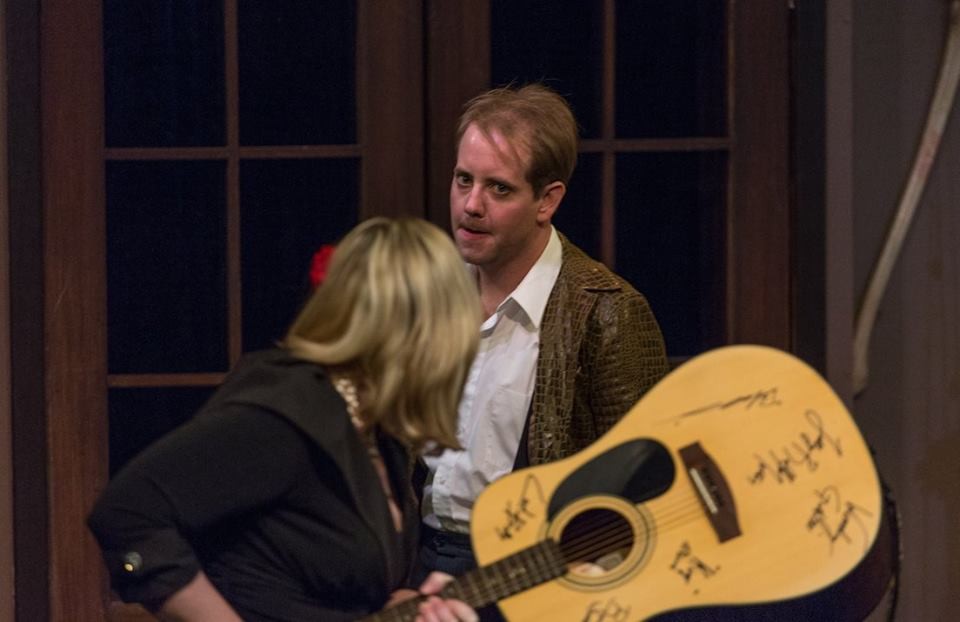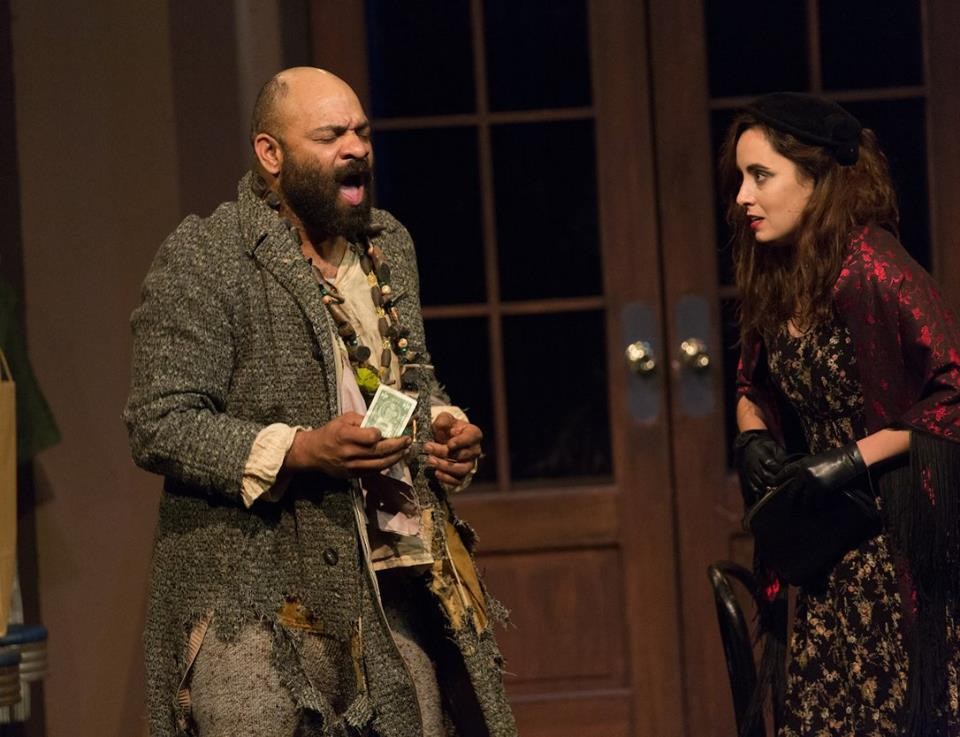
Lady & Val
Within me there’s a prison, surrounding me alone. Real as any dungeon with its walls of stone. I know running’s not the answer, but running’s in my nature, and the part of me that keeps me moving on. — “The Running Kind,” Merle Haggard.
“We`re under a lifelong sentence of solitary confinement inside our own lonely skins. — Orpheus Descending (AKA The Fugitive Kind), Tennessee Williams.
I don’t know why it gives me so much pleasure knowing that Merle Haggard’s song “The Running Kind,” is a melodic sketch of an underperformed Tennessee Williams play — Orpheus Descending. But it does. And it makes sense that Haggard, a hyperactive spirit who did his share of crime and time, would have been inspired by the tragedy’s big screen adaptation The Fugitive Kind, staring Marlon Brando as a streetwise musician carrying the blues on his back in the form of an old guitar signed by Leadbelly, Blind Lemon Jefferson, and other players whose “names are written in the stars.” Although the language can seem forced and artificial, there’s something authentically American about Orpheus Descending that echoes Haggard’s own hard luck storytelling at its very best.
Williams once described his version of the Orpheus myth as the story of a, “wild-spirited boy,” named Val who wears a snakeskin jacket and makes his living with a guitar. Val wanders into, “a conventional community of the South and creates the commotion of a fox in a chicken coop.” Underneath it all, according the the author, “it’s a play about unanswered questions that haunt the hearts of people and the difference between continuing to ask them…and the acceptance of prescribed answers that are not answers at all.”
In other words, it’s a play about race, sexual oppression, and how civilized and not-so-civilized folk talk about things we’re not supposed to talk about. It’s also a play from Williams’ middle period where great characters and interesting stories are overburdened by symbolic imagery and verbally excessive monologues. Orpheus Descending is particularly plagued by too many characters cluttering the narrative, especially in the play’s first act. But, given the right treatment, this particular obstacle evolves into the powerful evocation of a community defined by trivial pursuits, casual malice, and dirty little secrets.

Carol pays Uncle Pleasant to perform a native American chant.
The New Moon Theatre Company’s take on Orpheus has some rough patches. The staging is pretty basic, and live musical elements are jarringly underdeveloped. Honest performances by a solid cast of local character actors keep things compelling, even when the edges begin to fray.
Tracy Hansom is alternately powerful and painfully vulnerable as Lady, the daughter of an Italian immigrant, burned to death when his wine garden was torched by anonymous locals. Her accent wanders like a lost soul, but barely diminishes an otherwise strong showing. David Hammons is less convincing as the slew-footed Val, whose every unconscious move is interpreted as being sexually suggestive. But he’s deeply committed to the role, and effective.
The cast is chock full of Memphis’ finest. Top shelf actors including Ron Gephart, Tony Isbell, Delvyn Brown all appear in smaller roles, giving this production a lot of texture and depth. Michelle Miklosey is especially fine as Carol, the wild child from a good family, compelled to push the boundaries of taste and decency, at the expense of her own reputation.
I’ve often described Orpheus Descending as an inspired failure — a mess with bits and pieces that far outshine the whole. I’m not alone in that sentiment, either. The most scathing review of both the film adaptation and the play comes by way of actress Talulah Bankhead, who laid her harsh words on the author directly. “Darling, they’ve absolutely ruined your perfectly dreadful play,” Bankhead has been quoted as saying. I never thought it was as bad as all that, and over time my opinion has softened considerably. Warts and all, I tend to rank it among Williams’ better efforts. It’s certainly his strongest and most startling evocation of small town life in the deep South.
Will New Moon’s Orpheus turn your ticket? Maybe, maybe not. But it kept me engaged, and made me wonder why it’s been 40-years since anybody in Memphis staged this difficult but deserving play. I mean, this is where the playwright first discovered Chekhov on the Rhodes college campus. It’s where his first play was staged in the backyard of a Midtown home. And this is a play about music, the blues, and race and class struggles that include, but are not limited to the usual black and white. If ever there was a Tennessee Williams play that screams Memphis, this is it.
Catch it while you can. And do yourself a favor and listen to some Haggard before you go. And some Leadbelly too.
‘Orpheus Descending’ is Ragged but Right